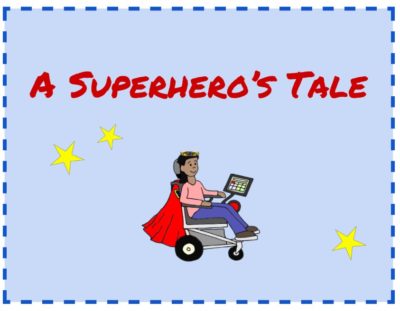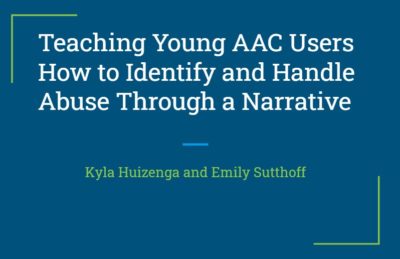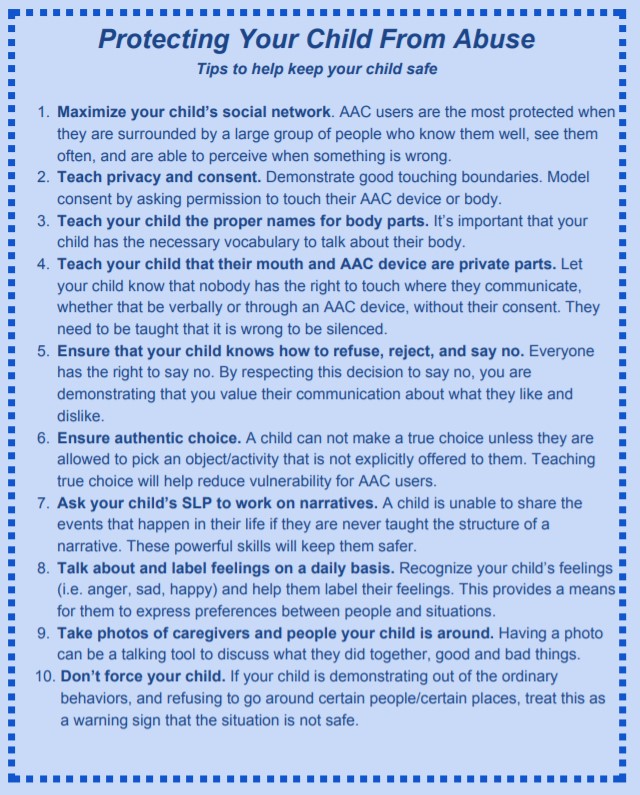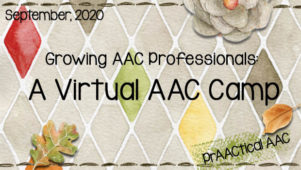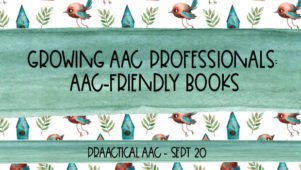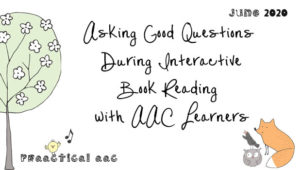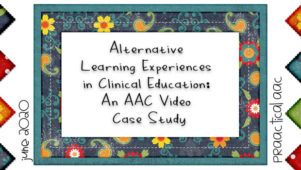Growing AAC Professionals: Learning about Safeguarding Practices
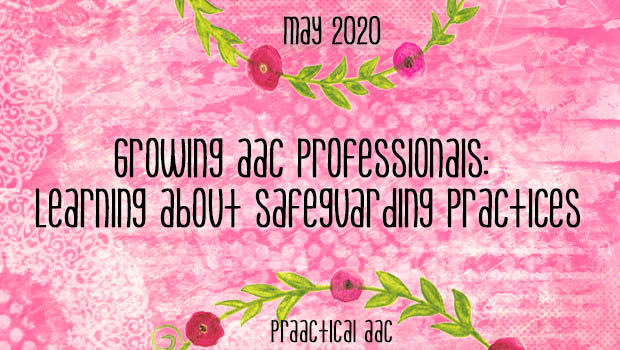
There are some things we’d rather not talk about. Sexual abuse toward people with complex communication needs is one of them. In today’s post, Vicki Haddix, a Clinical Assistant Professor at the University of Memphis, is back to share the experiences of her most recent students and a project they completed to educate young AAC users about this topic.
::::::::::::::::::::::::::::::::::::::::::::::::::::::::::::::::::::::
As I mentioned in my previous post, I’ve tried to incorporate the principles of UDL when designing my AAC course. Another way I do that is by giving students choices within assignments of blogs, webinars, and podcasts to read, view, and listen to in order to gain other perspectives on AAC. Hopefully, this also encourages lifelong learning, as we cannot possibly cover everything future SLPs need to know about AAC in a single class. But PrAACtical AAC as well as blogs by people who use AAC, ongoing webinar series like the one from USSAAC/ISAAC, and podcasts like Talking With Tech, will continue to provide high-quality information and highlight new developments in the field long after the semester ends.
Kathy Howery’s webinar on Mental Health and Students with Complex Communication Needs was a popular choice, and it certainly influenced several final projects. While most groups chose to focus on narrative development and literacy, Emily Suthoff and Kyla Huizenga came to me with a different proposal. They wanted to create something that would help families and caregivers educate young AAC users about inappropriate behavior.
When I heard this, I immediately referred them to Erin Sheldon’s AAC in the Cloud presentation from 2019: Safeguards for AAC Users: Vulnerability, Autonomy, and Being Heard.
In this presentation, Erin tackles a lot of issues that are hard to talk about and gives us some clear direction and practical steps to help reduce vulnerabilities, increase autonomy, and ensure AAC users are heard when they speak up.
Between these two webinars and the Stewards of Children training our school attended in a previous semester (https://www.d2l.org/education/stewards-of-children/), Emily and Kyla had a number of resources to explore. After doing some reading, they decided to write a short book, in the style of Some Secrets Should Never Be Kept, by Jayneen Sanders. They chose a superhero theme and used LessonPix for the symbols.
When Emily and Kyla presented this book to the class, I thought they had done excellent work, and that it could be a real asset to the field. However, it draws heavily on work from outside of the SLP/AAC world, and I wanted to consult another expert before we thought about distribution.
One of the nice things about working at a university is that there’s a whole community of experts who support student work. After asking around, I was referred to Dr. Minhae Cho, an assistant professor in the Department of Social Work who specializes in child welfare and children with disabilities. After reviewing the materials, this is what she told us:
“Thank you for the opportunity to review the AAC book. The sexual abuse of children who have challenges in communication is a difficult area of safeguarding practice that demands a consistent and age-appropriate response. I appreciate your efforts to create and disseminate the AAC book!
Contentwise, I found the AAC book delivers the essential information regarding sexual abuse, such as grooming and deception from the perpetrator and private areas to be protected. It also delivers an important message that professionals who work with those students and their parents are to remain vigilant to the risk of exploitation.”
Dr. Cho also suggested that we develop different levels of the book that are sensitive to an AAC user’s level of comprehension and specific to the type of disability. Perhaps for a future final project!
Emily, Kyla, and I are sharing this content in the hope that it can be helpful to start a conversation and to contribute to efforts to safeguard potentially vulnerable people. This topic can be very difficult to talk about, but it is crucial to do so.
You can find the PDF of the book here.The associated presentation and parent handout are in this folder: https://drive.google.com/open?id=14oroQ5Z2vy9PDmfSxTIGrPgZ01rR8slS
Filed under: Featured Posts, PrAACtical Thinking
Tagged With: abuse, Books, preservice training, reducing vulnerability, safeguarding
This post was written by Carole Zangari
